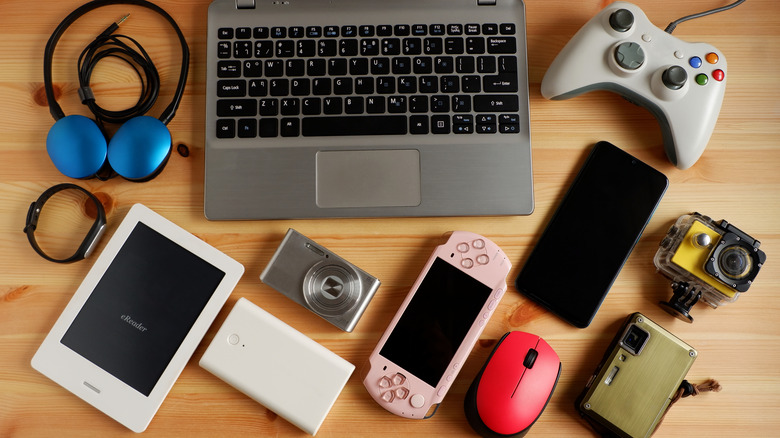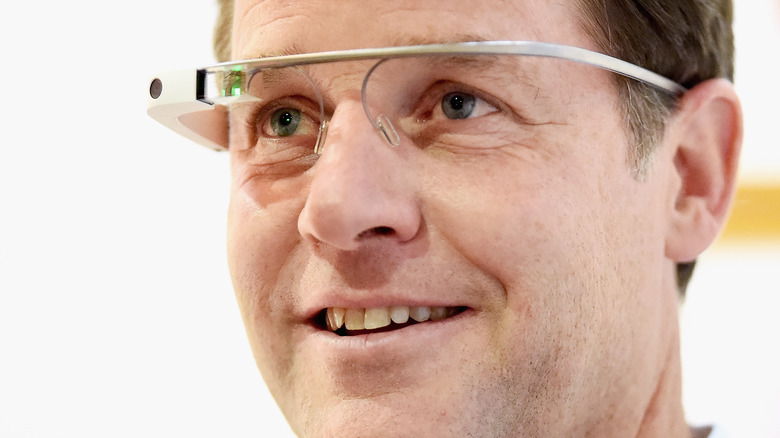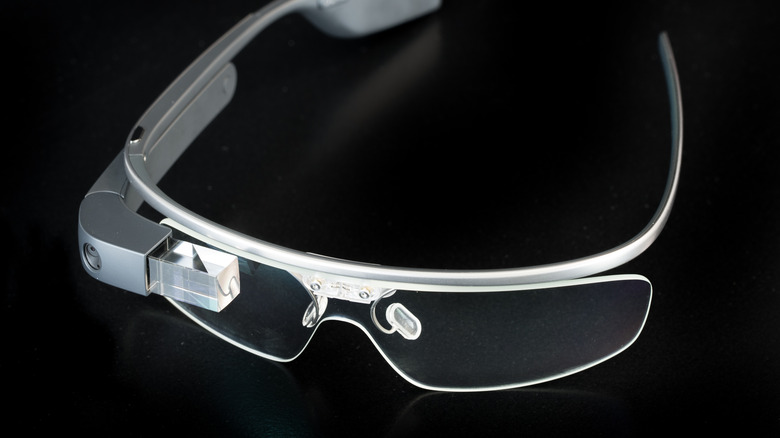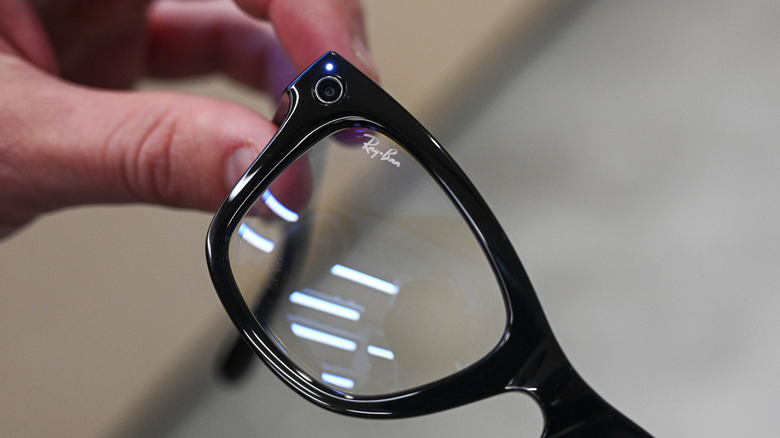Nearly 32% Wish This Failed Tech Product Would Make A Comeback
The tech industry can be a brutal place. Inventors pour their hearts and souls into products they believe will change the world — or at least make everyday tasks a bit easier — and investors back those ideas with billions of dollars of capital. Unfortunately, not all inventions make it. Some are unlucky, some are good but not as good as the competition, some simply launch at the wrong time, and some products are just downright bad. Some of the worst products in tech history have still sold a reasonable number of units. People even bought Juicero, a Wi-Fi-enabled machine designed to squeeze packs of already squeezed fruit juice. Nobody wants the $400 DRM-protected juice pack squeezer back, but there are other failed inventions that people are pining for.
According to a recent survey conducted by SlashGear, a noteworthy portion of the public wants a significant piece of wearable tech to make a comeback. The now-defunct device topped the poll ahead of several other long-gone devices, including a unique method of transportation, two phones, and one of the iPod's main rivals. These devices aren't the culmination of a wild Shark Tank pitch, either — they all had some significant backing. Launches from Amazon, Facebook, Microsoft, and Google all have failures on the list.
The idea itself wasn't even that bad. In fact, bits of technology it pioneered can be seen springing up on modern AI devices and other wearables. The way things are going, users may even get their wish and have one of these devices, or something similar, in their hands over the next few years.
Almost a third miss Google Glass
Close to 32% of the 621 United States residents SlashGear surveyed wanted Google Glass to make a comeback. The wearable tech was the clear leader in the poll, which also saw positive results for the Segway and Amazon's attempt at a smartphone. The Segway was a two-wheeled personal transport that made its way into stores and popular culture during the early 2000s. The self-balancing two-wheeled vehicle went away forever in 2020, but now 29.31% of our readers say they want it back.
The Amazon Fire Phone was a distant third with just under a quarter (23.67%) of those polled wanting to see it back on the market. The Fire Phone was launched back in 2014, but some technical issues combined with flagship-level pricing meant it was not on sale for long. Another big-tech-backed smartphone our respondents miss is the HTC-built Facebook Phone. As you would expect, the Facebook Phone had a button dedicated to opening the social media giant's app. Unfortunately, beyond that gimmick, it was a very limited phone in a very competitive market and didn't last too long. A total of 6.44% of those surveyed wanted a second chance for Mark Zuckerberg's foray into the phone market.
Finally, 8.86% of you are calling for the return of the Microsoft Zune. The MP3 player was released in 2006 and graced store shelves for around six years. Unfortunately for both Zune fans and Microsoft, the device never built the sort of following and reputation Apple's iPod enjoyed. Despite offering some solid features and doing its job quite well, the Zune was simply too far behind Apple's effort, which was already five generations deep by the time Microsoft's MP3 player launched. The product line was discontinued in 2012.
What went wrong with Google Glass?
One curious thing about Google Glass is it never actually launched, so people are pining for a product that essentially died during its testing phase. Glass first arrived with a significant amount of hype back in 2013. Beta versions of the headset were shipped out to Explorers, who then tested the hardware and gave feedback to the Silicon Valley giant. Despite it being in beta and containing all of the bugs that come with that, most testers had to pay a significant amount of money to get their hands on the desirable wearable — up to $1,500 in some cases. There were also major privacy concerns surrounding the product, with several events and establishments banning the wearing of Glass on their premises. One such event was Google's own shareholders' meeting. The company eventually pulled the plug on its Explorer Project in 2015, and access to Glass went with it.
Despite the project's abandonment, it wasn't seen as a total failure by Google. The project's designer, Diane von Furstenberg, saw it as a significant milestone, telling The New York Times, "This was the first time that people talked about wearable technology. Technology moves on faster and faster, and Google Glass will always be part of history." Von Furstenberg may have a point — as of 2022, wearable tech is a massive and still rapidly growing industry. Google did put in a lot of the groundwork. It also seems people outside of Google's offices remember the project fondly, too, as a huge chunk of the people we polled are ready to see Glass make a comeback.
They might get their wish
Fans of Google will be pleased to know the company has not abandoned the concept of wearable tech entirely. Plans and patents for Google Glass 2.0 were already in place before the original Glass failed. The company actually launched a new and improved version of Glass in 2019. The Glass Enterprise Edition 2 was priced at $999 and featured a number of improvements over its predecessor, including a better processor, sleeker form factor, and improved battery life. Unfortunately, you couldn't buy one as Google focused the release and sales on enterprise buyers only. Hopes for a general release of Google Glass were reignited in 2020 when Google bought smart glasses manufacturer North. With the push toward augmented reality, it is unlikely Google will stay out of the race to develop and release cutting-edge smart glasses. However, it is facing some stiff competition.
Facebook's parent company Meta currently has a Glass-like product on the market courtesy of its partnership with the luxury sunglasses brand Ray-Ban. Ray-Ban Stories, like Google Glass, has faced a good amount of criticism. However, they do allow users to record snippets of their day and post them on social media.
Meta may just be a sideshow, as all eyes are currently on how Apple plans to make its entry into the VR market. The iPhone manufacturer has yet to release firm plans, but leaks suggest it is planning both an AR headset and a pair of AR glasses. As with other Apple releases, it is almost certain the rest of the tech industry is going to take note when Tim Cook's company enters the world of VR and AR. Official news on the headset's release could be just around the corner, with Apple reportedly preparing to make an announcement as early as January 2023.



